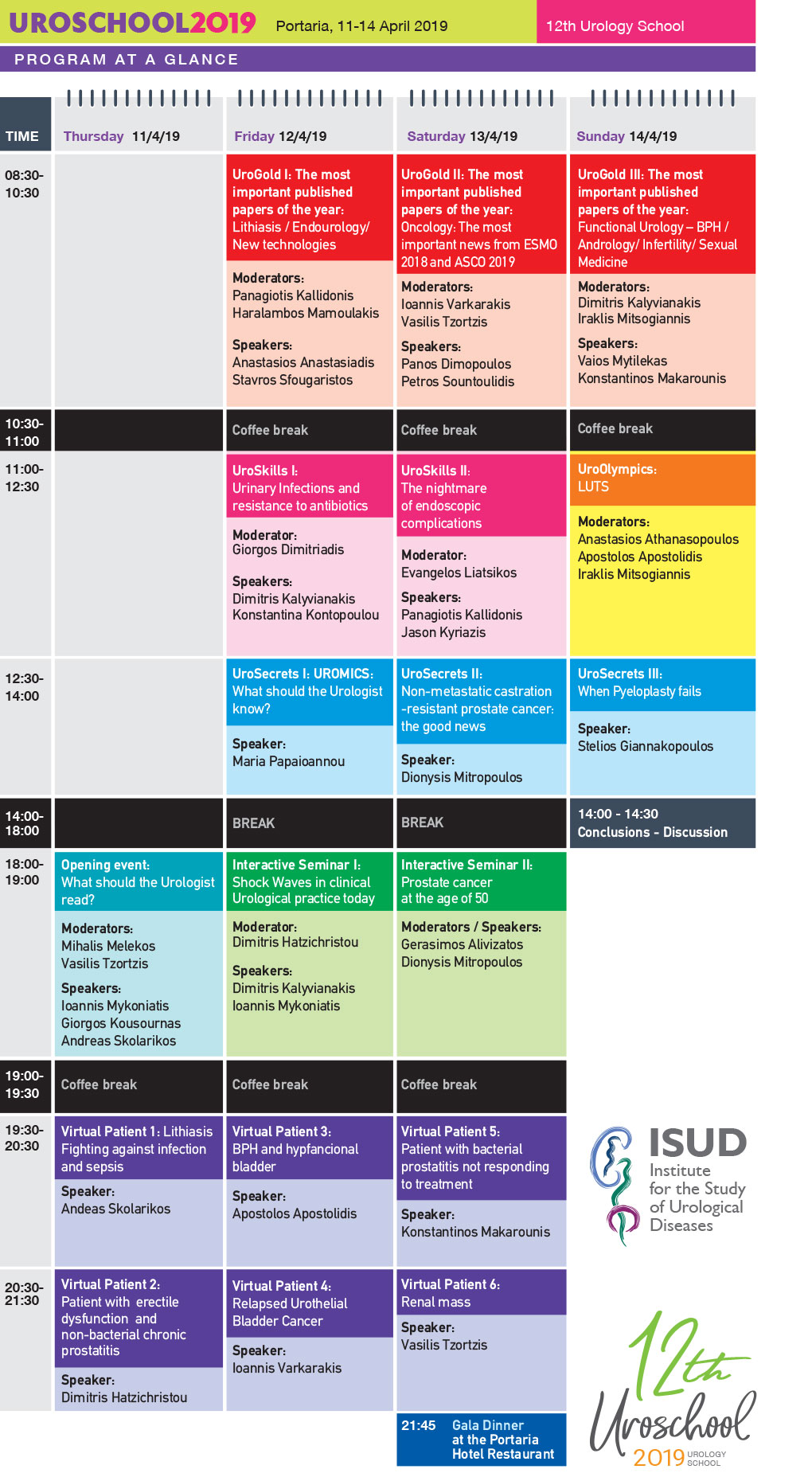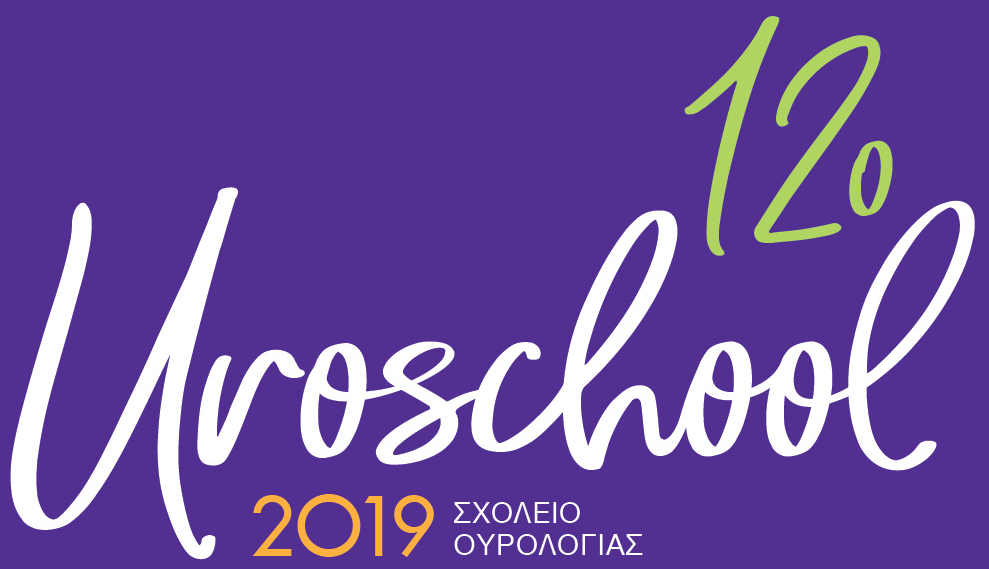
UROGOLD I: The most important published papers of the year: Lithiasis/ Εndourology / Νew technologies
We go through all published articles of the year. We choose the ones that have changed our clinical practice and present them to you in a brief and concise way.
Coffee Break
UROSKILLS I: Urinary Infections and resistance to antibiotics
Τhe huge problem in medical practice worldwide through the Urologist’s eyes. A Urologist sets his concerns by presenting a number of real cases, and a Microbiologist supports him in his therapeutic decisions.
UROSECRETS I: UROMICS: What should the Urologist Know
Genomics – Proteomics – Transcriptomics – Metabolomics –Mibrobiomics και φθάσαμε στα UROMICS.
INTERACTIVE SEMINAR Ι: Shock Waves in clinical Urological practice today
Low-intensity Shockwaves are today a strong therapeutic tool in the hands of Urologists as well. But what are Shock Waves? Do they differ from those used for lithotripsy?
Coffee Break
VIRTUAL PATIENT 6: BPH and Hypofunctional Bladder
Urinary retention holding 2 litres of urine; fortunately, without consequences in the upper urinary tract. Imaging shows benign prostate hyperplasia. Shall we operate the patient and when? Can we predict whether the patient will be able to urinate postoperatively?
VIRTUAL PATIENT 4: Relapsed Urothelial Bladder Cancer
The patient underwent TURBT two years ago for the first time (PTa), and since then has had 3 relapses. Many questions arise. How shall we manage the patient? Is there a way to prevent relapses? What have we done wrong?
UROGOLD II: The most important published papers of the year in Oncology: the news from ESMO 2018 and ASCO 2019
Every year the two major Oncology Conferences inform us about what is new related to the treatment of cancer. Urologic cancers are of great interest since they determine our everyday clinical practice.
Coffee Break
UROSKILLS IΙ: UroSkills IΙ: The nightmare of endourological complications
We have all faced complications in endourological surgeries. And often transoperative complications affect coronary vessels. Through their rich accumulated experience, the speakers will present us complications they will never forget and what they have learnt out of them.
UROSECRETS II: Non-metastatic castration-resistant prostate cancer: the good news
Two drugs have been approved for patients with non-metastatic castration-resistant prostate cancer. What have we learnt from studies? How will we use these drugs properly? Do they change the prognosis of the disease?
INTERACTIVE SEMINAR II: Increase of PSA at the age of 50
A man, 52 years old, does a check-up in view of his effort to have children in his second marriage. His PSA levels are suspicious and the biopsy sets the diagnosis of prostate cancer. How shall we reach and evaluate the diagnosis? How shall we approach the anxious man who refuses surgery?
Coffee Break
VIRTUAL PATIENT 5: Patient with bacterial prostatitis not responding to treatment
Το διαχρονικό δίλημμα του Ουρολόγου: Η σύντροφος ουρολοιμώξεις και κολπίτιδες και ο άντρας θετική καλλιέργεια σπέρματος. Η μια θεραπεία διαδέχεται την άλλη, αλλά οι καλλιέργειες παραμένουν θετικές. Μια προσέγγιση ενός περιστατικού που φέρνει σε απόγνωση τον Ουρολόγο.
VIRTUAL PATIENT 3: Renal mass
The patient’s CT scan shows a renal mass that we very often find hard to differentiate. Is it a tumor or not? Does it need to be operated? Can the kidney be saved? Shall we trust the Radiologist in the diagnosis of “benign” tumor?
UROGOLD III: The most important published papers of the year: Functional Urology – Benign Prostate Hyperplasis (BPH) – Infertility – Sexual Medicine
Lower-Urinary Tract Symptoms (LUTS) are probably the chapter that we are the most familiar with in Urology. However, knowledge is constantly enriched. Last year the guidelines changed for at least two disorders: erectile dysfunction and essential oligoasthenospermia.
Coffee Break
UroOlympics: LUTS
The new thematic module of UroSchool is “UroOlympics”. Three distinguished colleagues pose 10 questions upon three different chapters of urinary disorders: Benign Prostate Hyperplasia, Neurourology and Urogynecology.
UROSECRETS III: What should the Urologist know about renal function in patients with Lithiasis?
The surgery was successful and the patient is doing well postoperatively. However, from a functional point of view, imaging shows that the obstruction still remains. A particularly difficult moment for the Surgeon. Whan can be done? Shall we dare perform a revision surgery?


















